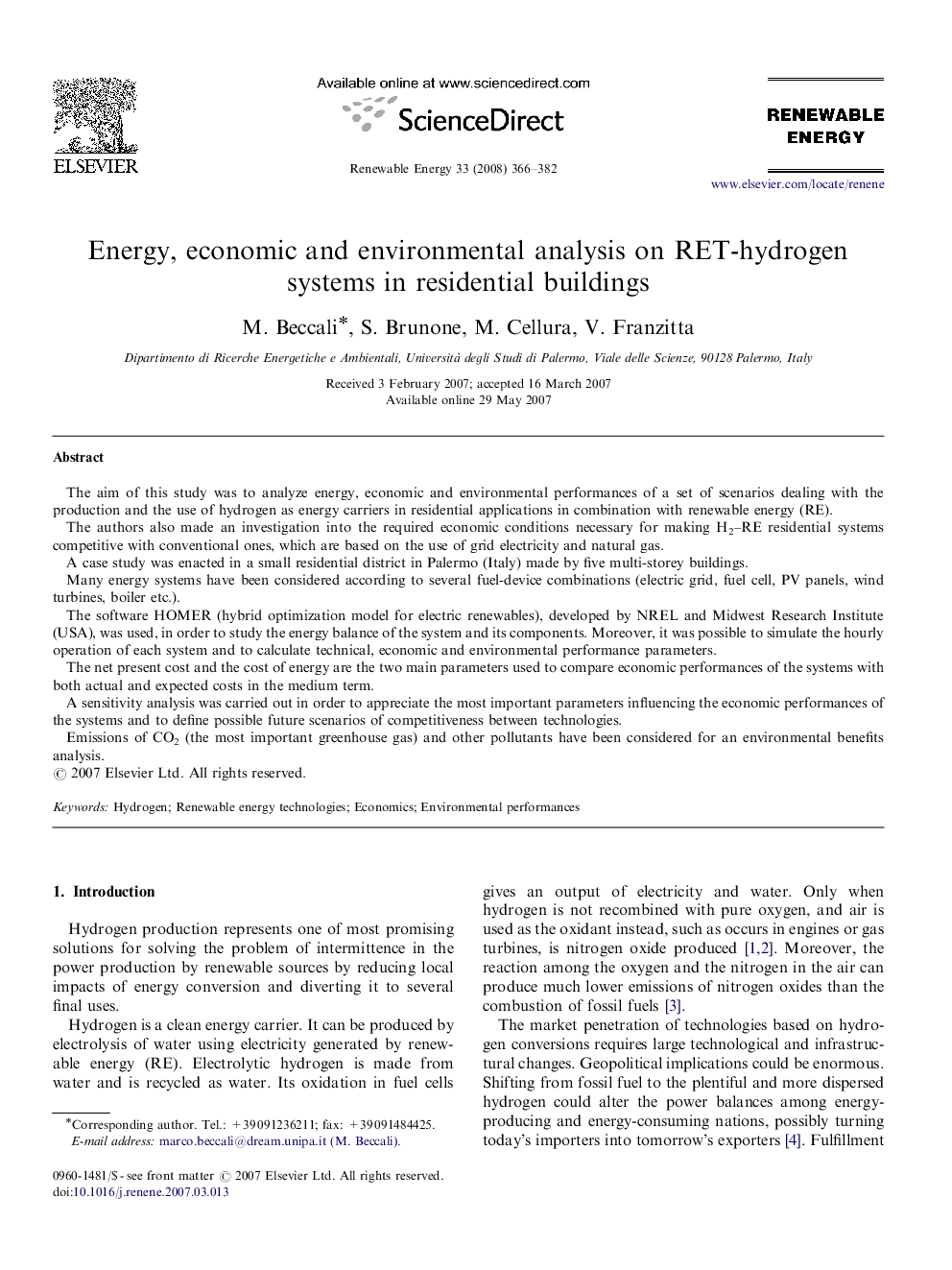| Article ID | Journal | Published Year | Pages | File Type |
|---|---|---|---|---|
| 302706 | Renewable Energy | 2008 | 17 Pages |
The aim of this study was to analyze energy, economic and environmental performances of a set of scenarios dealing with the production and the use of hydrogen as energy carriers in residential applications in combination with renewable energy (RE).The authors also made an investigation into the required economic conditions necessary for making H2–RE residential systems competitive with conventional ones, which are based on the use of grid electricity and natural gas.A case study was enacted in a small residential district in Palermo (Italy) made by five multi-storey buildings.Many energy systems have been considered according to several fuel-device combinations (electric grid, fuel cell, PV panels, wind turbines, boiler etc.).The software HOMER (hybrid optimization model for electric renewables), developed by NREL and Midwest Research Institute (USA), was used, in order to study the energy balance of the system and its components. Moreover, it was possible to simulate the hourly operation of each system and to calculate technical, economic and environmental performance parameters.The net present cost and the cost of energy are the two main parameters used to compare economic performances of the systems with both actual and expected costs in the medium term.A sensitivity analysis was carried out in order to appreciate the most important parameters influencing the economic performances of the systems and to define possible future scenarios of competitiveness between technologies.Emissions of CO2 (the most important greenhouse gas) and other pollutants have been considered for an environmental benefits analysis.
